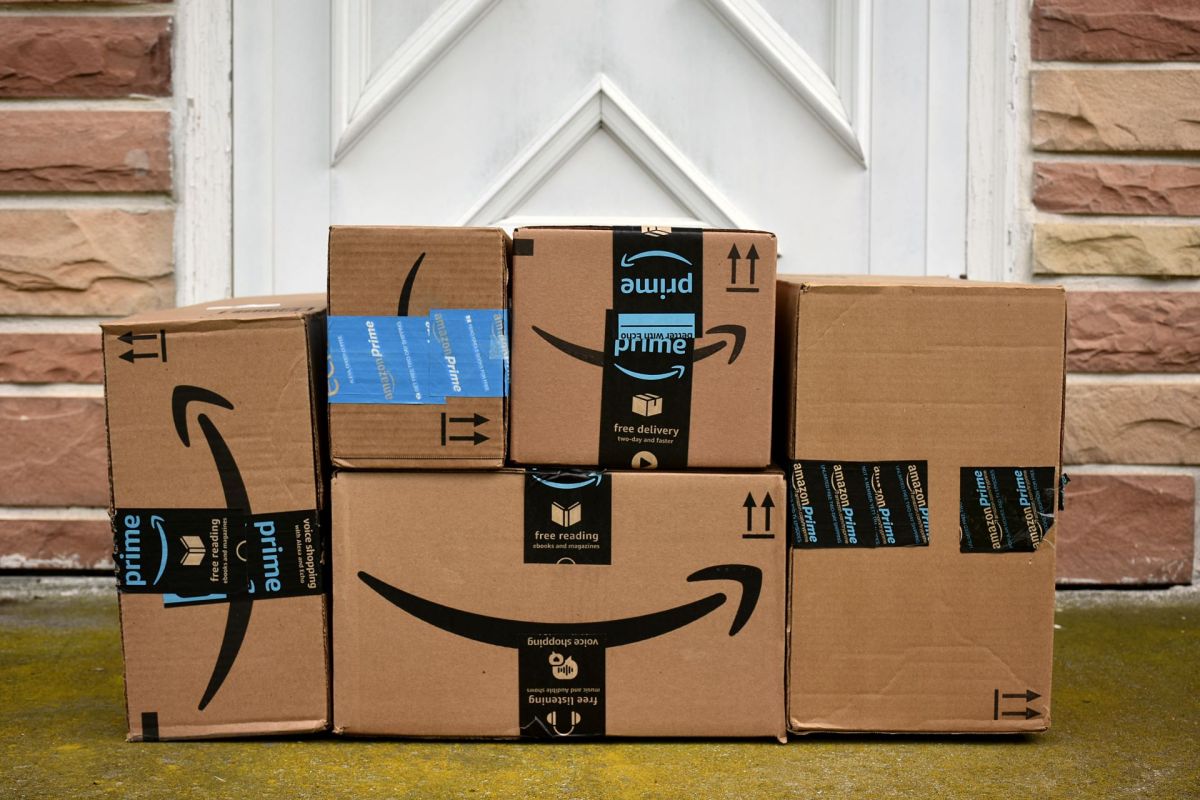With low prices and same-day deliveries, Amazon is the first stop for many online shoppers. But how do you know you're getting what you pay for on Amazon? The trouble is, you don't.
Thousands of shoppers have complained that they've received counterfeit or mislabeled products from Amazon. In a post on r/BuyItForLife, a subreddit dedicated to built-to-last products, a Reddit user speculated about why this may happen so frequently.
Using Darn Tough Socks as an example, the poster explained that all product inventory likely gets lumped together, regardless of the seller.
"Amazon assumes that all product is genuine, and that all sellers of a product are providing legit product (intentionally remaining ignorant that counterfeit product exists)," they wrote. "So if there are 5 sellers of Darn Tough socks (we'll call them Seller A/B/C/D & DT), Amazon tosses all that product together in the same bin at their warehouse."
Say Darn Tough Socks (DTS) and sellers A, B, and C sell Darn Tough Socks, but seller D sells counterfeits. The Redditor posits that the counterfeits may get thrown in the same storage as the socks from DTS and sellers A, B, and C. So when you order from any of these sellers — even those selling legitimate products — there's a 20% chance you'll end up with seller D's counterfeits.
Even if you select DTS as your seller on Amazon, you may still risk receiving counterfeits, because the legitimate product and the counterfeits can be stored together.
"If you want to be sure you are getting legitimate, non-counterfeit product, use Amazon to find a brand you like, and then go to that brand's own webpage to buy it," concluded the original poster. "Amazon really can't be trusted to deliver non-counterfeit product anymore."
By buying directly from the brand, you can guarantee that you're getting what you want. This is especially true when you want to buy something that is made to last. Counterfeits are often cheaply made with low-quality materials, so they're easier to damage or break. Replacements ultimately cost you more money and contribute unnecessary waste to landfills.
"True for anything, not just Darn Tough or [Buy It For Life]," one user commented, explaining that they had reduced their use of Amazon.
"I always buy [Buy It For Life] products from actual retailer when possible," another agreed.
TCD Picks » Quince Spotlight

Join our free newsletter for easy tips to save more, waste less, and help yourself while helping the planet.













